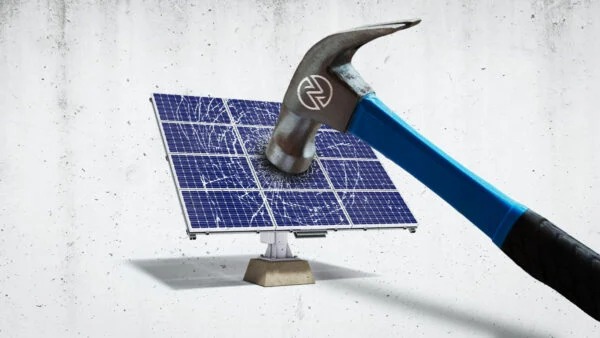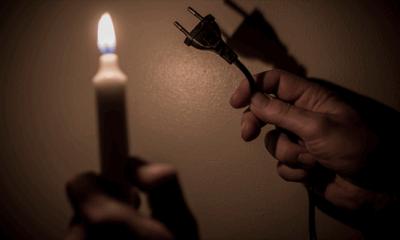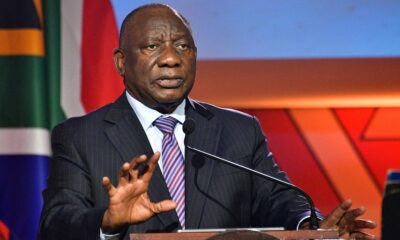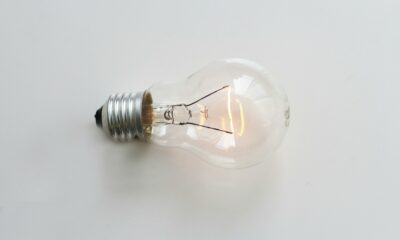Business
“Now They’re Charging Us for Going Solar?” South Africans React to Eskom’s Controversial New Fee

From energy independence to unexpected penalties: why the power utility’s fixed charge could push users off-grid for good.
When South Africans were urged to adopt solar energy, many households took the leap. Some scraped together savings; others took out loans. But it was worth it: freedom from endless load shedding, lower power bills, and a sense of doing the right thing for the planet and the grid. Now, just as those investments start paying off, Eskom has introduced a fixed charge, even for people who hardly use the grid.
Understandably, citizens are furious.
“It makes no sense,” says Wayne Duvenage, CEO of the Organisation Undoing Tax Abuse (OUTA). “We were told to reduce our usage, we were encouraged to get solar, and now Eskom wants to penalise us for it?”
He is not alone. The new fixed fee, targeting households with rooftop solar who remain connected to the grid, has sparked a public backlash and raised difficult questions about the future of energy in South Africa.
What Is the Eskom Fixed Charge?
Under the current structure, even if you use very little electricity from Eskom, you will now be billed a fixed fee for grid access. Think of it as a maintenance levy, regardless of how much, or how little, power you draw.
Energy expert Vally Padayachee, a former executive at both Eskom and City Power, explains that the fee is intended to help fund upkeep of the national network. While technically justifiable, it lands heavily on the very people who tried to lighten the load.
For Duvenage, it is less about the cost and more about the message it sends.
“It is irrational. It tells solar users: thanks for helping us survive load shedding; now here is your punishment,” he said.
The Risk of Driving Users Off the Grid
Many solar users still rely on Eskom’s power at night or during long stretches of cloudy weather. But Duvenage warns this new charge may tip the scales.
“For some people, it will be the final push. They will say: let me take out a R20,000 loan, invest in batteries, and disconnect entirely.”
This is where Eskom’s strategy may be working against itself. By charging people who are still partially dependent on the grid, the utility could drive away its most cost-conscious customers. That means less revenue for Eskom, not more, in the long run.
A Broken System Beneath the Surcharge
At its core, the solar charge is not just about solar panels or grid fees. It is a symptom of something far bigger: South Africa’s failing infrastructure model.
Duvenage points out that local governments, who collect electricity revenues, are failing to reinvest in infrastructure.
“In Johannesburg, the city should be spending at least 8 percent of its budget on maintaining and upgrading infrastructure. Instead, we spend less than 1 percent,” he said.
That money, instead of going into grid improvements, often disappears into bloated bureaucracies or politically driven projects. For the average household, it means unreliable service, rolling blackouts, and now, unexpected fees.
Who Is Really Running the Show?
According to Duvenage, the problem is rooted in a lack of professionalism in local government.
“You have got municipalities handling billions in public funds being run by people who are not qualified. You would never run a private company this way.”
He notes examples of municipalities without Chief Financial Officers or with drastically lowered standards to accommodate political appointments. This political interference, he says, chokes the effectiveness of the system and breeds public distrust.
South Africans Speak Out
Across social media and community forums, frustration is building. Homeowners are questioning whether their efforts to go green have been wasted. Some are already weighing the costs of fully disconnecting from the grid, while others feel trapped, punished for trying to be proactive.
“First they give us load shedding, then we help ourselves with solar, and now they want more money from us anyway?” reads one viral post on X.
For many, the issue is no longer just about energy. It is about fairness, accountability, and whether the institutions meant to support progress are actively undermining it.
Eskom’s Crossroads Moment
As South Africa inches toward a renewable energy future, experts say now is the time for government and power providers to support the transition, not resist it.
“Punishing those trying to be part of the solution is hardly a sustainable fix,” Duvenage said. “If Eskom and municipalities want to remain relevant and financially viable, they should enable the energy transition, not penalise it.”
Because if the current approach continues, many solar users may soon have one final message for Eskom: goodbye, for good.
Also read: From Vision to Victory: South Africa’s First Woman-Led Bank Becomes eNL Mutual
Follow Joburg ETC on Facebook, Twitter , TikTok and Instagram
For more News in Johannesburg, visit joburgetc.com
Source: Business Tech
Featured Image: MyBroadband

























